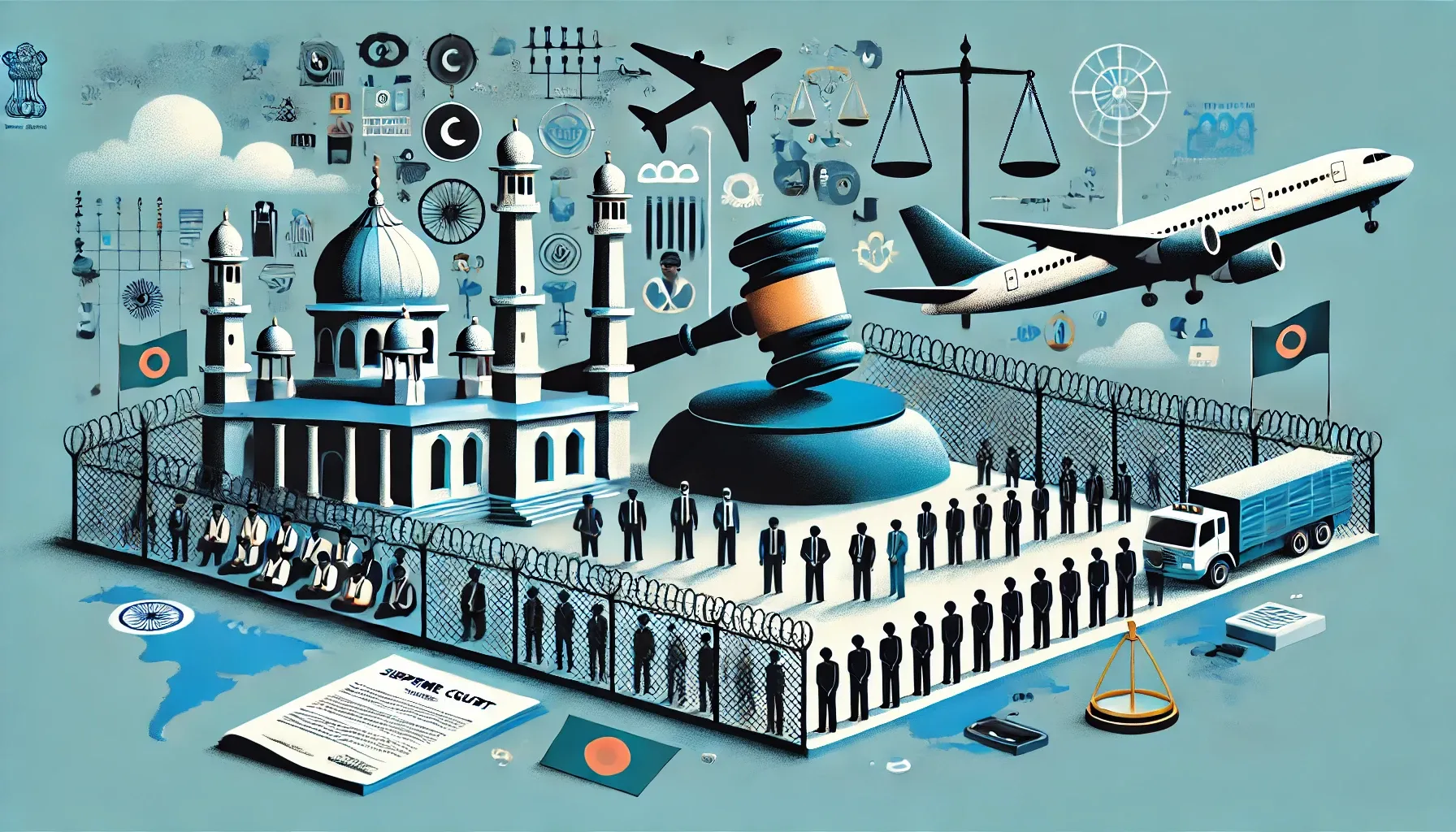The Supreme Court has questioned the Union Government over the indefinite detention of illegal Bangladeshi immigrants instead of deporting them. The Court has sought data on detainees awaiting repatriation.

The Supreme Court of India has raised concerns over the prolonged detention of illegal Bangladeshi immigrants in India, questioning the Union Government on why they are not being deported after completing their sentence under the Foreigners Act, 1946. The Court has sought data on the number of such detainees currently held in detention centers or correctional homes across the country.
Supreme Court’s Observations and Queries
- A bench comprising Justice JB Pardiwala and Justice R Mahadevan inquired about the rationale behind keeping these immigrants in detention centers for an indefinite period instead of deporting them back to their home country.
- The bench emphasized that once an individual has been convicted under the Foreigners Act, 1946, and has completed their sentence, their status as a non-citizen of India is established. The Court asked:
- “How many illegal immigrants as on date are in various detention camps/correctional homes after being convicted and having undergone the entire sentence under the Foreigners Act?”
- “What is the idea in keeping hundreds of such illegal immigrants in Detention Camps/Correctional Homes for an indefinite period of time?”
- The Court noted that according to Clause 2(v) of a circular issued by the Government of India on November 25, 2009, the process of verification and deportation of such immigrants should be completed within 30 days. The bench questioned the Union Government on why this directive was not being followed strictly.
Case Background: Maja Daruwala v. Union of India
- The case originated from a 2011 letter written by the petitioner to the Chief Justice of the Calcutta High Court, highlighting the plight of illegal Bangladeshi immigrants who continued to be detained in correctional homes in West Bengal even after serving their sentence.
- The Calcutta High Court took suo motu cognizance of the issue, and in 2013, the matter was transferred to the Supreme Court for further consideration.
- During the hearing held on January 30, 2025, the Court also asked the Union Government to clarify what role the State of West Bengal was expected to play in these cases.
- The next hearing is scheduled for February 6, 2025.
Related Developments
- Another Supreme Court bench, headed by Justice Oka, has also questioned the Union Government regarding the indefinite detention of illegal immigrants in detention centers in Assam.
The Supreme Court’s inquiry brings to light a critical issue surrounding illegal immigration, deportation policies, and human rights. The Union Government’s response in the upcoming hearing will determine the future course of action in such cases.
Case Title : Maja Daruwala v Union of India
Attachment:





